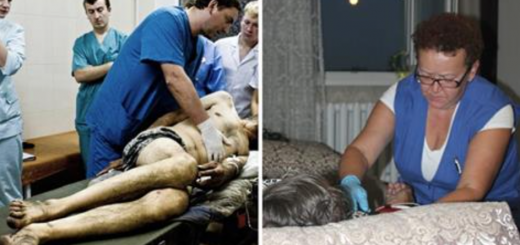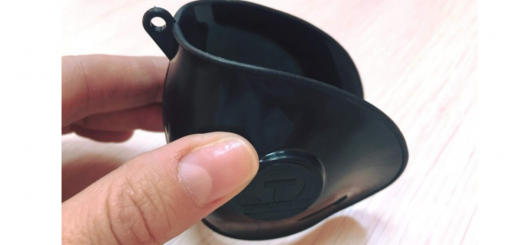My mother’s face drained of color. My father suddenly became intensely interested in a spot on the carpet. My sister, who had been passing by with a laundry basket, stopped abruptly.
«Hey, who wants hot chocolate? I am making some with those peppermint marshmallows Emma loves.» The transparent attempt to change the subject confirmed my growing suspicion. Something was very wrong.
I smiled at Emma, not wanting to alarm her. «That sounds nice. We will be down in a minute.»
Once the others had gone, I closed the bedroom door and sat beside Emma on her bed. «Honey, I need you to tell me exactly what happened with money while I was gone.» The story Emma told broke my heart piece by piece.
My parents had told her from the beginning that I could not send money due to deployment complications. They provided her with basic necessities, but complained frequently about the financial burden of caring for her. Emma had started working weekends at a local cafe when she was 14, using her earnings for school supplies, activity fees, and occasionally new clothes.
«I did not want to ask you for anything,» Emma explained, tears forming. «You were doing something so important, and Grandma said you were already stressed about money. I sold my iPad to pay for the science trip, and when the soccer team needed new uniform fees, I just quit because I knew Grandma and Grandpa could not afford it.»
I pulled her into a tight hug, my mind racing with calculations. $18,000 would have covered all her needs many times over. The new furniture, my father’s car, my sister’s bracelet, and countless other improvements around the house suddenly made sickening sense.
«Did Grandma and Grandpa ever give you an allowance?» I asked, already knowing the answer. Emma shook her head. «They gave me $10 for my birthday.»
«Grandma said times were tight.» That evening, while Emma was showering, I discreetly examined my parents’ home office. In a desk drawer, I found vacation brochures for a Caribbean cruise scheduled for February.
The booking confirmation showed a suite package costing over $5,000. In another folder were receipts for jewelry, electronics, and clothing that totaled thousands more. When I checked Emma’s school portal using her login information, I saw her grades had slipped significantly.
Comments from teachers noted increased tardiness and incomplete assignments. One teacher had written, «Emma appears tired in class. She mentioned working weekend shifts, interfering with homework time.»
The reality was becoming undeniable. My parents had systematically diverted funds meant for Emma’s care to finance their own lifestyle improvements. My daughter had been working while attending school full-time, selling her possessions, and going without necessities, despite my explicit financial support.
When Emma mentioned missing a dentist appointment because the insurance was complicated, I nearly lost my composure. I had provided complete documentation of her military-dependent insurance coverage that required no payment for routine care. Later that night, I cornered my sister in the kitchen after everyone else had gone to bed.
«Did you know they were taking Emma’s money?» I asked directly. Amanda fidgeted with her bracelet. «I did not know the whole story,» she hedged.
«Mom and Dad mentioned you sent some money for emergencies but said it was not much. They complained about expenses a lot.» «They received $2,000 every month, specifically for Emma,» I stated flatly.
Amanda had the decency to look shocked at the amount, though I doubted her surprise was genuine. «Well, child care is expensive,» she eventually said. «They deserve something for taking her in.»
«Taking her in? She is their granddaughter, not a stray dog,» I replied, struggling to keep my voice down. «I would have happily paid them separately for their time if they had asked. That money was explicitly for Emma’s needs.»
Amanda shrugged uncomfortably. «You should talk to them, not me. I am sure they had their reasons.»
As I lay awake that night with Emma sleeping soundly beside me, I formulated a plan. The betrayal cut deep, but impulsive confrontation would only create more trauma for Emma during what should be a happy reunion. Christmas was two days away. Extended family would be arriving.
I needed to be strategic, not emotional. The next morning, I woke early and drove to a nearby coffee shop with free Wi-Fi. Emma was still sleeping, exhausted from the emotional excitement of my return.
I needed privacy for what came next. First, I downloaded my complete banking records for the past nine months, documenting every $2,000 transfer with dates, confirmation numbers, and account details. The paper trail was unambiguous.
Next, I called my unit’s legal assistance office. As an active duty service member, I had access to free legal counsel. I explained the situation without emotion, focusing on facts.
The attorney on call advised me that what my parents had done could potentially qualify as financial exploitation, particularly given that the funds were designated for a minor’s care. He promised to email me relevant documentation and offered to connect me with local resources. When I returned to the house, my mother was making breakfast, acting as if nothing was amiss.
«We are going to the mall later to finish Christmas shopping,» she announced. «Do you need anything?» «Actually, I would like to take Emma shopping for some clothes,» I replied. «I noticed she has outgrown most of what she has.»
My mother’s smile faltered. «We got her some things a few months ago. Kids grow so fast at this age.»
«I can see that,» I said pleasantly. «She could use some new winter boots, too. The duct tape repair is creative but not very warm.»
My mother busied herself with pancake batter. «Things have been tight, you know. Your father’s medication costs went up.»
This was news to me. «What medication? Is dad okay?» «Oh, just blood pressure. Nothing serious.»
She waved dismissively, then added, «But insurance only covers part of it.» My father had excellent retirement health coverage that I knew included prescription benefits.
Another lie. While Emma and I were getting ready to leave, I overheard my parents arguing in their bedroom. «She knows something,» my mother hissed.
«You need to stick to the story about medical expenses.» «What about the car?» my father responded. «We cannot exactly hide that.»
«Say it was a good deal you could not pass up. Use your retirement account excuse.» «And the cruise brochures in the office?»
My sister’s voice joined the conversation. «I told you to hide those. Just keep things normal through Christmas.»
«She will go back to base soon anyway.» Their casual assumption that I would simply return to duty without addressing the situation infuriated me, but I maintained my composure. This was about evidence gathering now.
At the mall, Emma and I had our first truly private conversation. Over lunch in the food court, I asked her more about the past nine months. Each new detail strengthened my resolve.
«I worked every Saturday and Sunday morning at Cafe Luna,» she explained. «The owner, Mrs. Garcia, gave me extra shifts during school breaks. That is how I bought my Christmas presents this year.»
«Did grandma and grandpa know you were working so much?» Emma nodded. «They drove me sometimes, but usually I rode my bike. It is about two miles each way.»
«In winter?» I asked, remembering the harsh local weather. «It was not so bad,» she shrugged. «I wore lots of layers.»
I learned that Emma had sold not just her iPad, but also the collection of fantasy novels I had given her over the years, her wireless headphones, and even the silver locket containing a photo of her father and me. «Mr. Winters at the pawnshop gave me $50 for the locket,» she said, eyes downcast. «I needed it for the graphing calculator for math class.»
«Grandma said they were too expensive, and I should borrow one, but nobody would lend theirs for the whole semester.» Each revelation was a fresh wound, but I maintained a supportive demeanor. «You did what you thought was right, Emma.»
«I am proud of your resourcefulness, but I wish you had not needed to work so hard or sell your treasured possessions.» That afternoon, I insisted on driving Emma to visit her friend Lily, giving me an opportunity to speak with Lily’s mother, Kate. We had been friendly before my deployment, and I trusted her perspective.
Kate confirmed my fears. «We were all concerned about Emma,» she admitted after Emma had gone upstairs. «She would never join the girls for weekend activities because of work.»
«She wore the same few outfits repeatedly. At Lily’s birthday sleepover, she did not bring a gift and was so embarrassed, we pretended it had gotten lost.» «Did she ever mention money problems?» I asked.
«She said her grandparents were on a fixed income and could not afford extras. We offered to pay her way several times, but she refused. Such a proud girl.» Kate hesitated.
«I hope you do not mind, but I bought her new jeans and gave them to her as a random gift. Her pants were inches too short by spring.» I thanked Kate for her kindness and asked if she would be willing to provide a written statement about her observations if needed.
She agreed without hesitation. While Emma visited with Lily, I drove to her school. The building was closed for winter break, but I had scheduled an appointment with her guidance counselor, Mrs. Reynolds, who had agreed to meet briefly.
Mrs. Reynolds’ assessment was equally troubling. Emma’s academic performance dropped noticeably around March. She went from a straight-A student to mostly Cs and Bs.
Her math teacher reported she often fell asleep in class. «When we discussed it, Emma attributed it to working weekend mornings starting at 5:30.» «Did anyone contact my parents about this?» I asked.
«Multiple times. They assured us it was temporary and that Emma was just adjusting to your absence. When we suggested reducing her work hours, they said it was Emma’s choice and built character.»
Mrs. Reynolds looked troubled. «We were concerned, but without evidence of neglect, our options were limited.» I thanked her for meeting during the holiday and asked if the school had documentation of these conversations.
She assured me they maintained detailed records of all parent communications. By evening, when we returned to my parents’ house, I had gathered substantial evidence. I had photographs of Emma’s inadequate clothing and worn shoes, testimony from her friend’s mother, school documentation of academic decline, work verification from her employer, and bank records proving the money transfers.
I also had Emma’s journal, which she had voluntarily shared with me. Her entries documented numerous instances of being told they could not afford basic items she needed, her grandparents’ frequent complaints about financial burden, and her own guilt about being expensive to keep. One particularly heartbreaking entry read, «Called mom today, but could not tell her about needing money for the field trip.»
«She looked so tired on the video call, and grandma said mom is struggling to pay for her own food on deployment. I will just tell my teacher I am sick that day.» That night, I helped Emma wrap Christmas presents for the family.
She had spent her cafe earnings on thoughtful but inexpensive gifts: homemade cookies for relatives, a coffee mug for my father, a scarf for my mother, and a photo frame for me. Meanwhile, I had noticed shopping bags from luxury retailers hidden in my parents’ closet when I was searching for wrapping paper. The contrast could not have been more stark.
While my daughter worked weekends and sold cherished possessions to afford a $10 photo frame, my parents had diverted thousands of dollars meant for her care to fund luxuries for themselves. Christmas Eve was tomorrow. Extended family would gather, and I would be ready.
Christmas Eve morning dawned bright and cold. I had barely slept, my mind cycling through various approaches to the confrontation ahead. Emma sensed my distraction, but attributed it to readjustment from deployment. In reality, I was executing a carefully considered plan.
Step one was financial protection. While Emma helped my mother prepare breakfast, I visited the local branch of my bank. As a precaution, I had already frozen the automatic transfers from my deployment account.
Now I established a new checking account with Emma as a joint holder, transferring funds from my savings to cover her immediate needs. The banker, a veteran herself, expedited the process when I explained I had just returned from deployment. Next, I called Lieutenant Colonel Richards, my former commanding officer and a trusted mentor.
Now retired and practicing family law, she had offered guidance during difficult situations in the past. When I explained the circumstances, her advice was measured but firm. «Document everything, Cassandra.»
«Texts, emails, bank statements, photos. Wisconsin has specific statutes addressing financial exploitation of dependents that may apply here.» She paused.
«Are you planning to confront them today?» «Extended family will be present,» I explained. «Witnesses make denial harder.»
«Just remember, this is ultimately about Emma’s well-being. Whatever approach causes her the least additional trauma should guide your decisions.» She was right, of course.
This could not be about revenge or even justice in a conventional sense. It needed to be about recovery, financial and emotional, for Emma. My third call was to Staff Sergeant Martinez from my unit, now working in the JAG office.
He confirmed that military family service centers could provide resources, including emergency financial assistance, if needed, though my careful saving had made this unnecessary. More importantly, he offered to connect me with a victim advocate who specialized in financial recovery cases. «The power dynamic with parents is complicated,» he noted.
























































